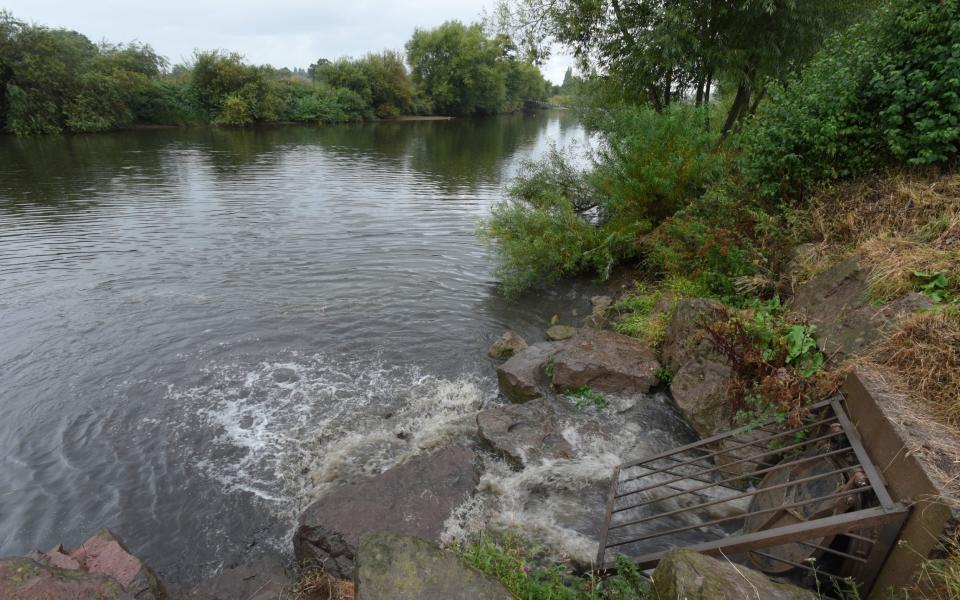River sewage a serious public health issue that water companies must tackle, warns Chris Whitty

River sewage is becoming a serious public health concern, Prof Sir Chris Whitty has warned, as he demanded that water companies do more to keep effluent out of Britain’s waterways.
Writing for The Telegraph, the Chief Medical Officer joined forces with Jonson Cox, chair of water regulator Ofwat, and Emma Howard Boyd, chair of the Environment Agency, to call on companies to urgently invest in ways to stop human waste entering water courses.
The trio said it was “unacceptable” that some individual storm overflows were releasing sewage up to 200 times a year, even though they were designed only for exceptional use during extreme rain.
Sir Chris is concerned that bathers and other recreational river users could become seriously ill by ingesting bacteria from human faeces - coliforms - which can lead to severe infections.
“Nobody wants a child to ingest human faeces,” he said. “No-one expects river water to be of drinking standard, but where people swim or children play they should not expect significant doses of human coliforms if they ingest water.
“Raw sewage from storm overflows and continuous discharge of waste containing viable organisms from sewage treatment works is an increasing problem.
“This is a serious public health issue for the government and regulators and it is clear that the water companies are not doing enough.”

As part of its Clean Rivers Campaign, The Telegraph is calling for action to stop water companies as well as industrial agriculture and urban waste producers from polluting England’s beauty spots.
An investigation by this publication earlier this year found that water companies were releasing raw sewage into rivers more than 1,000 times a day.
Effluent was discharged into rivers and coastal areas for more than 3.1 million hours on more than 400,000 occasions throughout 2020, according to data from the Environment Agency.
It included a site on the River Derwent in Duffield, Derbyshire, where sewage was pumped into the river for 8,000 hours in 2020, but which had just 456 hours of heavy rainfall.
Ingesting coliforms from human waste can lead to nausea, vomiting and diarrhoea; and in the elderly or immune-compromised it can cause more serious infections in the lungs, skin, eyes, nervous system, kidneys or liver.
Sir Chris said that many people had taken up wild swimming in lockdown and had continued since the pandemic drew to a close, leaving more people at risk from raw sewage.
But just two stretches of river in Britain have safe bathing water status compared to more than 500 in France, he warned.
“When bacteria from human faeces (coliforms) are ingested, it increases the risk of significant infections including antibiotic resistant bacteria,” he added.
“Keeping human faeces out of water people might ingest remains a public health priority.”
The experts said that use of storm overflows to release built-up sewage should be “exceptionally rare’’ and only occur when there was a genuine storm.
“Storm overflows act as a safety release valve, but were intended only for exceptional circumstances when the public would be unlikely to be using rivers.”
“In some cases, up to 200 discharges a year are occurring. This is obviously unacceptable on public health grounds.”
Companies urged to treat sewage before it enters rivers
Public health officials also want companies to do more to treat sewage before it enters rivers, a practice which currently happens at seaside beaches using ultraviolet treatment to kill bacteria.
“Eliminating discharges of coliforms from sewage works upstream of popular recreational areas will go a long way to reducing human faecal infective organisms downstream,” they added.
Ofwat has asked all companies to produce an action plan setting out how they will rapidly improve river health.
The experts also called on members of the public to avoid flushing wet wipes, which can congeal together to create “fatbergs” which block sewers and drains.

